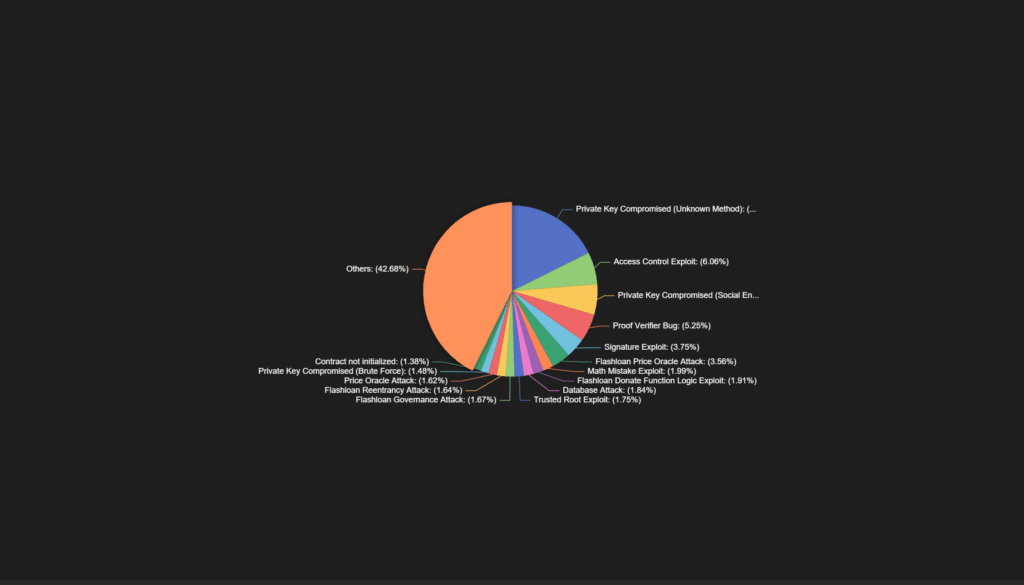ARTICLE AD
Crypto hacks have cost the digital asset industry billions of dollars, with experts advising additional attention and resources toward security measures.
According to DefiLlama, all-time losses incurred from crypto hacks exceeded $7.7 billion as of April 1, despite a 23% decrease in incidents during the first quarter of 2024 compared to last year. Data revealed that decentralized finance protocols lost the most money since 2016, with hackers having stolen $5.8 billion from defi in seven years.
Platforms that enable users to transfer assets between blockchains, commonly called bridges, account for over half of defi hacks. Exploiters looted $2.8 billion from these solutions through several attack vectors inherent in smart contract loopholes.
Per DefiLlama, private key compromises, access control exploits, proof verifier bugs, signature exploits, and flash loan price oracle attacks ranked as the five most popular methods for crypto hacks. However, 42% of all incidents remain unaccounted for, so experts are unsure how attackers orchestrated nearly half of all hacks.
 Hack categories | Source: DefiLlama
Hack categories | Source: DefiLlama
The first recorded crypto hack
The oldest recorded crypto hack was perpetuated on “The DAO”, a decentralized autonomous organization focused on venture capital funding. Launched in April 2016, the initiative was hacked two months later in June, and lost roughly $60 million.
Hackers utilized a reentrancy bug to execute a withdrawal function multiple times within a single transaction, allowing the funds to be drained.
Ronin’s record $600m crypto hack
Axie Infinity’s Ronin bridge lost over $600 million in a crypto hack attributed to North Korea’s infamous cybercriminal group, Lazarus. It remains the crypto’s largest single-protocol exploit to date.
As crypto.news reported, Lazarus robbed hundreds of millions in Ethereum (ETH) and Circle’s stablecoin USD Coin (USDC), after compromising Ronin’s private keys. Ronin has staged a comeback this year, following support from exchanges like Binance and coin listings on Coinbase.
Although security remains a crypto pain point, experts opine that the industry will ultimately achieve more resistance against bad actors as stakeholders establish better relationships.
We believe that the cryptocurrency industry will gradually attain comprehensive security over time. This necessitates the industry’s steady growth, coupled with effective collaboration between governments, law enforcement agencies, and the crypto sector.
Slava Demchuk, AMLBot co-founder and CEO
 7 months ago
44
7 months ago
44 

